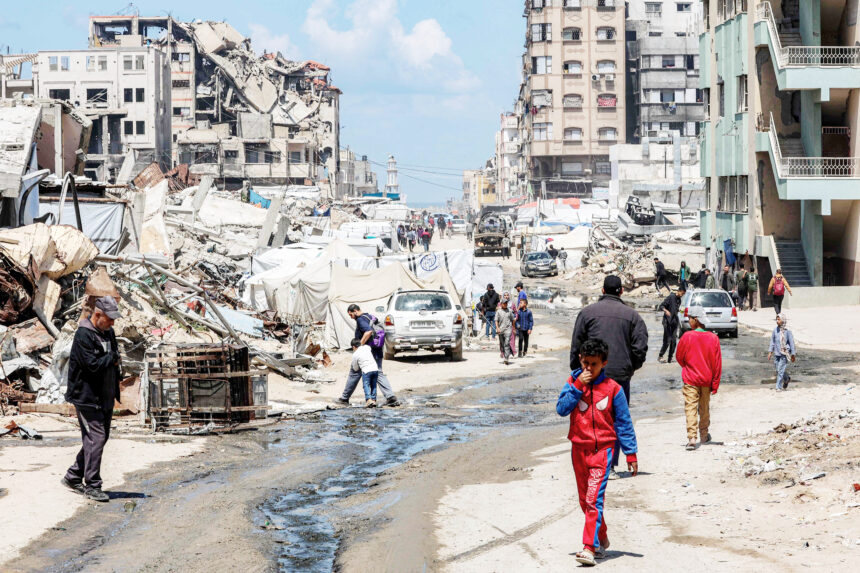GENEVA – Israeli forces have killed dozens of civilians in Lebanon since a ceasefire took effect late last year, including a number of women and children, the United Nations said yesterday.
The UN rights office reported that Israeli military operations had killed and injured civilians in Lebanon in the four months since the fragile truce between Israel and Hezbollah on 27 November.
“According to our initial review, at least 71 civilians have been killed by Israeli forces in Lebanon since the ceasefire came into effect,” rights office spokesman Thameen Al-Kheetan told reporters in Geneva.
“Among the victims are 14 women and nine children,” he said, urging that “the violence must stop immediately”.
The delicate truce between Israel and Hezbollah came after more than a year of hostilities initiated by the Iran-backed militant group over the Gaza conflict, including two months of all-out war when Israel also sent in ground troops.
But months after the agreed end to fighting, Kheetan warned that people in Lebanon “people remain gripped by fear, and over 92,000 are still displaced from their homes”.
The rights office noted that Israeli strikes on Lebanese territory had hit civilian infrastructure since the ceasefire, including residential buildings, medical facilities, roads and at least one cafe.
The southern suburbs of Beirut were also hit in early April for the first time since the ceasefire took effect, in two different incidents, Kheetan said, adding that the area targeted was near two schools.
“A strike on a residential building in the early morning of 1 April killed two civilians and caused significant damage to neighbouring buildings,” he said.
Two days later, “Israeli airstrikes hit a newly-established medical centre run by the Islamic Health Society in Naqoura in southern Lebanon, completely destroying the centre and damaging two ambulances”, he said.
He added that “multiple Israeli airstrikes on several towns in the south of Lebanon reportedly killed at least six people” between 4 and 8 April.
Israel had also faced attacks since the truce took effect, Kheetan said.
Since last November, at least five rockets, two mortars and a drone were launched from Lebanon towards northern Israel, he said, citing figures from the Israeli army, adding that “tens of thousands of Israelis are still reportedly displaced from the north”.
Kheetan demanded that all parties to the conflict “respect international humanitarian law, including the principles of distinction, proportionality and precaution”.
“There must be prompt, independent and impartial investigations into all allegations of serious violations of international humanitarian law, and those found responsible must be held to account.”
– Nampa/AFP


